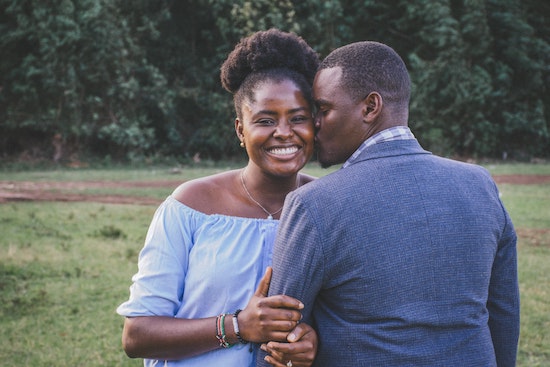Do You And Your Partner Feel Like You’re Not On The Same Team Anymore?

Are communication issues getting in the way of your marriage or relationship? Does your significant other seem distant and unresponsive, as if there’s an invisible wall separating them from you? Do you try and try to resolve conflict, only to have every conversation turn into a shouting match?
Based on the way you were raised and the relationships you’ve experienced, you and your partner may have communication styles that put you at odds with each other. One of you may withdraw from conflict while the other rushes to meet it head-on; one of you may point fingers while the other gets defensive and reactionary. If left unaddressed, these communication patterns can put a strain on your relationship and cause you to feel disconnected from each other.
Over time, you and your loved one may suffer a lack of romantic and sexual desire for each other. There may be intimate subjects that you no longer feel comfortable broaching—you don’t feel like you can be vulnerable with each other. You don’t know where things went wrong, but somewhere along the way, you went from being on the same team to playing on opposing sides.
Here at Crosswinds Center, we are confident that we can help you and your partner get back to being on the same team again. Our goal is to empower both of you to become more responsible, available, and compassionate in your relationship with each other.
Everyone Carries The Wounds Of Their Past Into Present Relationships
Every couple argues. At the very least, arguing is a sign that you’re emotionally engaged with each other. However, when your words are intended to wound, belittle, or push away, that’s a sign that there are deeper problems within your relationship or marriage. It’s good to ask yourselves: Are our arguments constructive, or are we just putting each other down?

Oftentimes, the conflicts in a relationship are the result of different upbringings. If your partner was raised in a home where yelling was the norm, they may think that yelling is a perfectly acceptable way to resolve conflict. But if you were raised in a home where this wasn’t the case, yelling may seem shocking and off-putting to you. In this way, your family of origin can have a profound effect on how you interact with your significant other in the present.
After all, we often carry the wounds of our past without realizing it. All of us bring our own relational baggage into our relationships, which makes us very sensitive to cues that past hurt will repeat itself. For instance, if we experienced abandonment or betrayal in a past relationship, it’s only natural to fear that we will be abandoned or betrayed again. To make matters worse, we all bring different relational pain into our relationships, so it’s hard for us to see eye to eye with our partners.
Nowadays, couples are bombarded with a wealth of relationship and marriage advice, the benefits of which are often questionable—it usually centers on solving basic communication issues and spicing up a couple’s sex life. While these tips may be beneficial to a certain extent, they only address the surface issues in a relationship and generally aren’t helpful to couples who are seriously struggling.
This is why couples and marriage therapy is so vital. It’s a chance to talk with someone who can help you and your significant other look beyond the surface-level issues and get to the core of your relationship problems. Our goal is to help you understand how past wounds inform your struggles today and use that knowledge to deepen your relationship with your significant other.
Couples Therapy Can Help You And Your Partner Identify Where The Disconnect Really Lies
It’s easy to point the finger at your partner and blame them for your relationship troubles. But for your relationship to thrive, it’s important for both of you to recognize how you each contribute to conflict. After all, even if one of you embodies the relationship problems more than the other, a relationship cannot grow when only one half is willing to change. Couples counseling is a chance to step back and examine yourself, paying attention to how you internalize the hopes, needs, and fears of your relationship.

After meeting with both of you together for the first session to discuss goals and expectations, we will generally have an individual session with each of you separately. This will allow us to get a clearer picture of where each of you is coming from and where the disconnect in your relationship might lie.
From there, we will resume working with both of you together. Our goal is to help you and your loved one break down walls of defensiveness, work on active listening skills, and learn to de-escalate conflict. Most importantly, we want both of you to practice “I” statements—instead of telling your partner what they’re doing wrong, we will teach you to focus on how their actions make you feel. For example, rather than say “You always yell at me,” you will learn to say “I want to be closer to you, but when you yell at me, I’m too scared to be close to you.”
In this way, by focusing on how you emotionally experience the relationship, you can improve your communication with each other. As a result, you will be able to develop more responsive and connected ways of relating to each other. This can help you achieve greater levels of intimacy and prevent your romance from feeling stale and monotonous.
Above all, we encourage you and your partner to be kind to yourselves. The way that you’ve been relating to each other makes sense, as both of you are informed by different life experiences. But attachment is changeable—you don’t have to remain stuck in the same emotional and relational patterns forever. By identifying your feelings, erasing defensive tendencies, and improving your communication, we are confident that you can strengthen your relationship in ways you never imagined.
You may have some concerns about couples and marriage counseling…
My partner is reluctant to come to couples therapy.
Perhaps your partner doesn’t want to explore an intimate part of their lives with a stranger. Or maybe they’re afraid that the couples counselor will side with you and lay the blame on them. If this is the case, we can offer your partner a chance to talk openly about these fears and concerns with us. And if they still don’t want to attend, we would be happy to conduct individual relationship counseling with you. After all, if your partner sees the benefits of therapy in your changed behavior, maybe they’ll be motivated to join you!
Are you going to tell us that we should get divorced? Or stay together?

Whether you decide to continue your relationship or end it is a choice that only you and your partner can make. We can certainly help both of you talk about how you want to proceed, but we are not here to make life-changing decisions for you. If you do decide to go your separate ways, our goal will be helping you uncouple with the least amount of damage possible.
Couples therapy is for people with serious problems, not us.
There is no litmus test for how “serious” your issues need to be to come to counseling. In fact, it’s much easier to solve problems in a relationship when they are not so serious. This is why it’s important to be proactive and take advantage of opportunities for growth while it’s still early. Doing so can prevent you from having to reckon with bigger conflicts down the road and help you strengthen your relationship for years to come.
You And Your Loved One Don’t Have To Be On Opposite Teams Anymore
With our help and support, we are confident that we can help you and your significant other heal the disconnection in your relationship and renew your love for each other. To get started, you can call 833-710-7770 or use our online contact form.
Because of COVID-19, we currently provide both telehealth and in-person couples counseling services.
